Women Who Can’t Stand Their Pets After Having Children Usually Have These 11 Reasons
Being a mother changes everything, including your relationship with your fur babies.
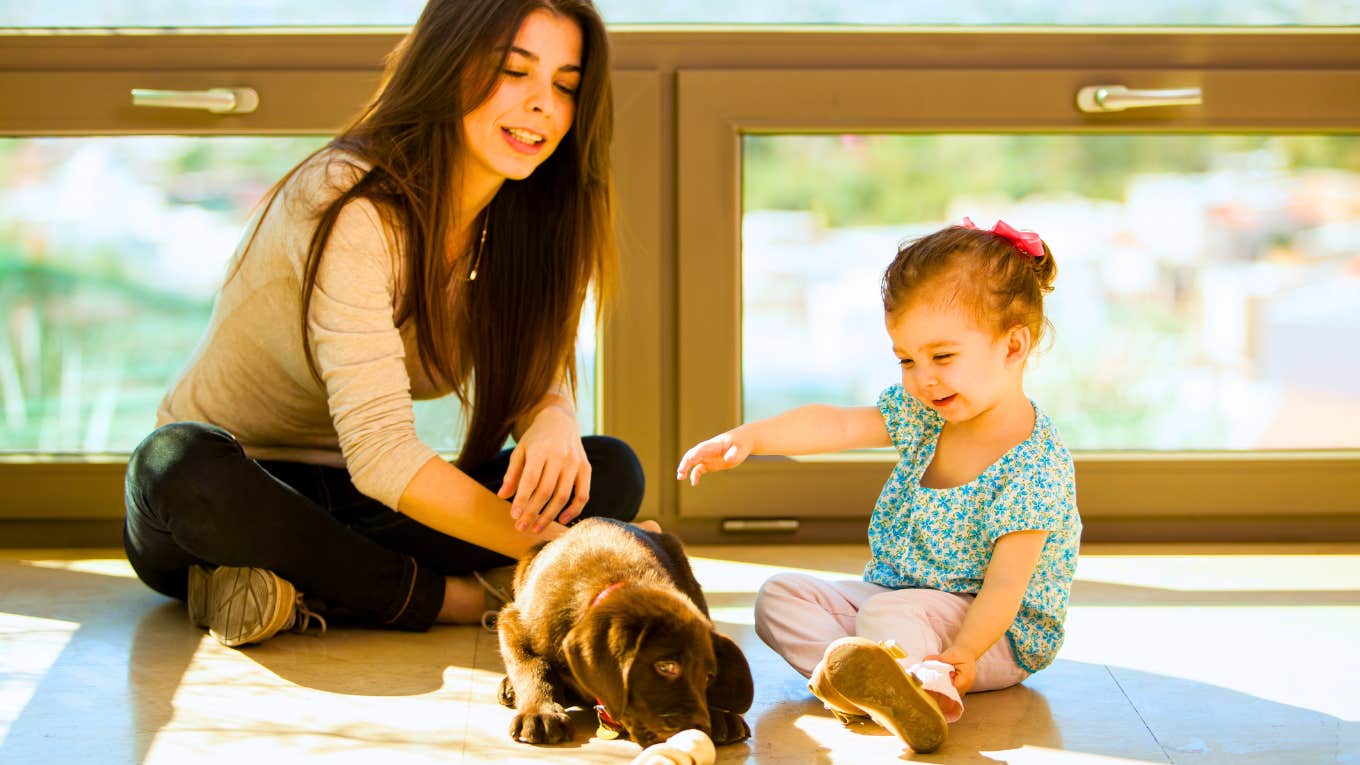 antoniodiaz / Shutterstock
antoniodiaz / Shutterstock Becoming a parent is one of the most transformative experiences in a woman's life. It shifts her perspective on everything, including her once-beloved pets. She used to have unconditional love for her little furry companion, but now there is a new life that supersedes it. That love can turn into frustration, guilt, or resentment. Many would never say it, but many mothers start feeling overwhelmed by pets when they have a baby.
Before motherhood, pets were like your first babies. You cared for them, loved them, and spoiled them. The bond seemed unbreakable. But after your baby is born, your priorities shift, and you might feel overwhelmed, annoyed, or disconnected from your favorite animal. It's not uncommon, and there are many valid reasons why some women can't stand their pets after having children.
Women who can't stand their pets after having children usually have these 11 reasons
1. They don't have patience for the constant messes
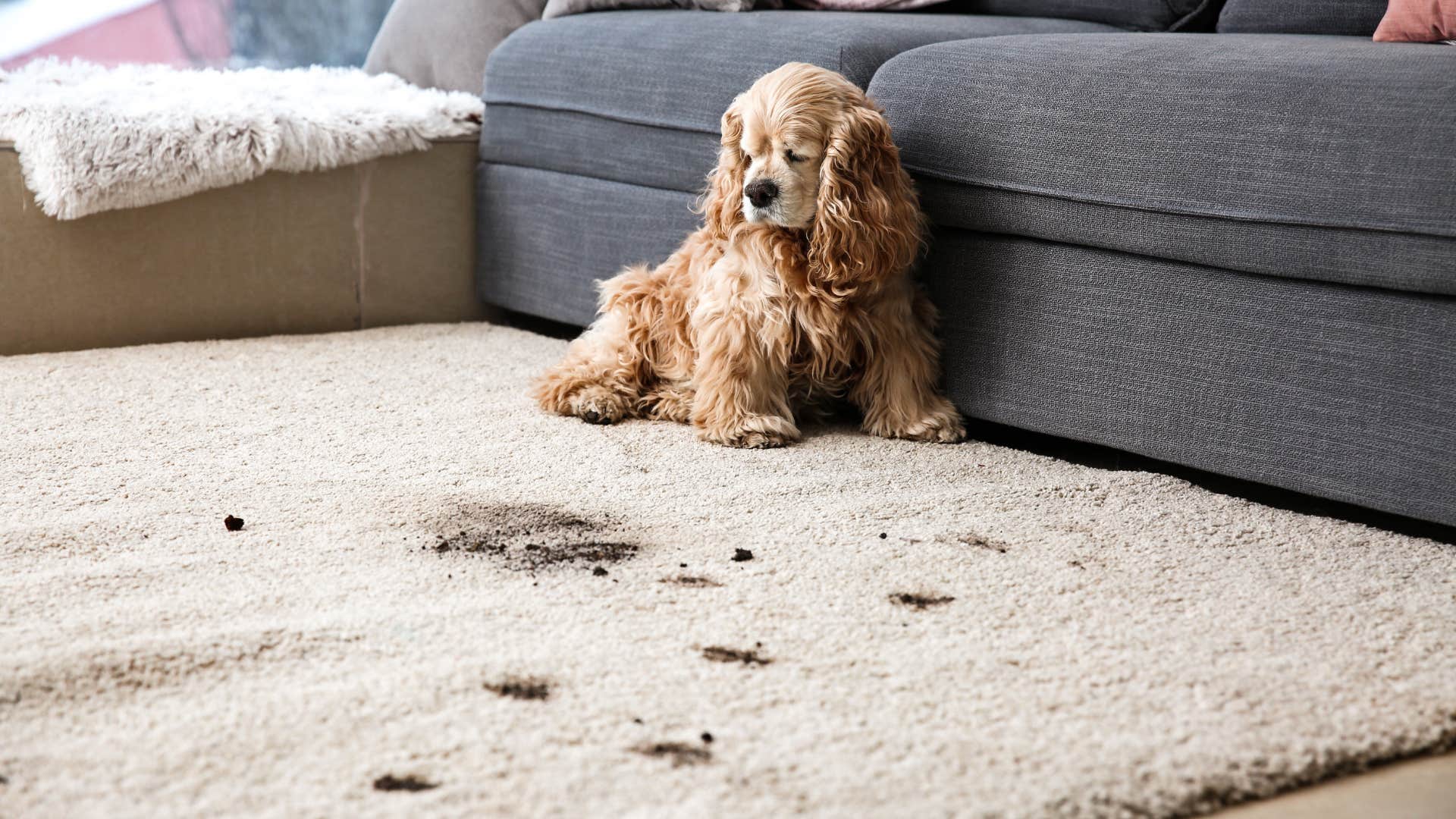 pixelshot via Canva
pixelshot via Canva
A few scattered chew toys or a wayward ball of fur used to be no big deal for women who own pets. But once a baby is on board, messes become one more thing to clean and much less tolerable. You are already under a mountain of stress, and a little bit of pet hair on the couch or a shoe that has been chewed up until it is unrecognizable feels like the straw that broke the camel's back.
Picking up baby toys, wiping spit-up, and changing diapers is already overwhelming. Add stepping in dog urine or seeing kitty litter tracked across the carpet makes maintaining some level of cleanliness for your crawling baby seem impossible. The pet isn't any messier than it used to be. You are just less forgiving due to the weight of all your other responsibilities.
2. The pet's needs take a back seat to the baby's
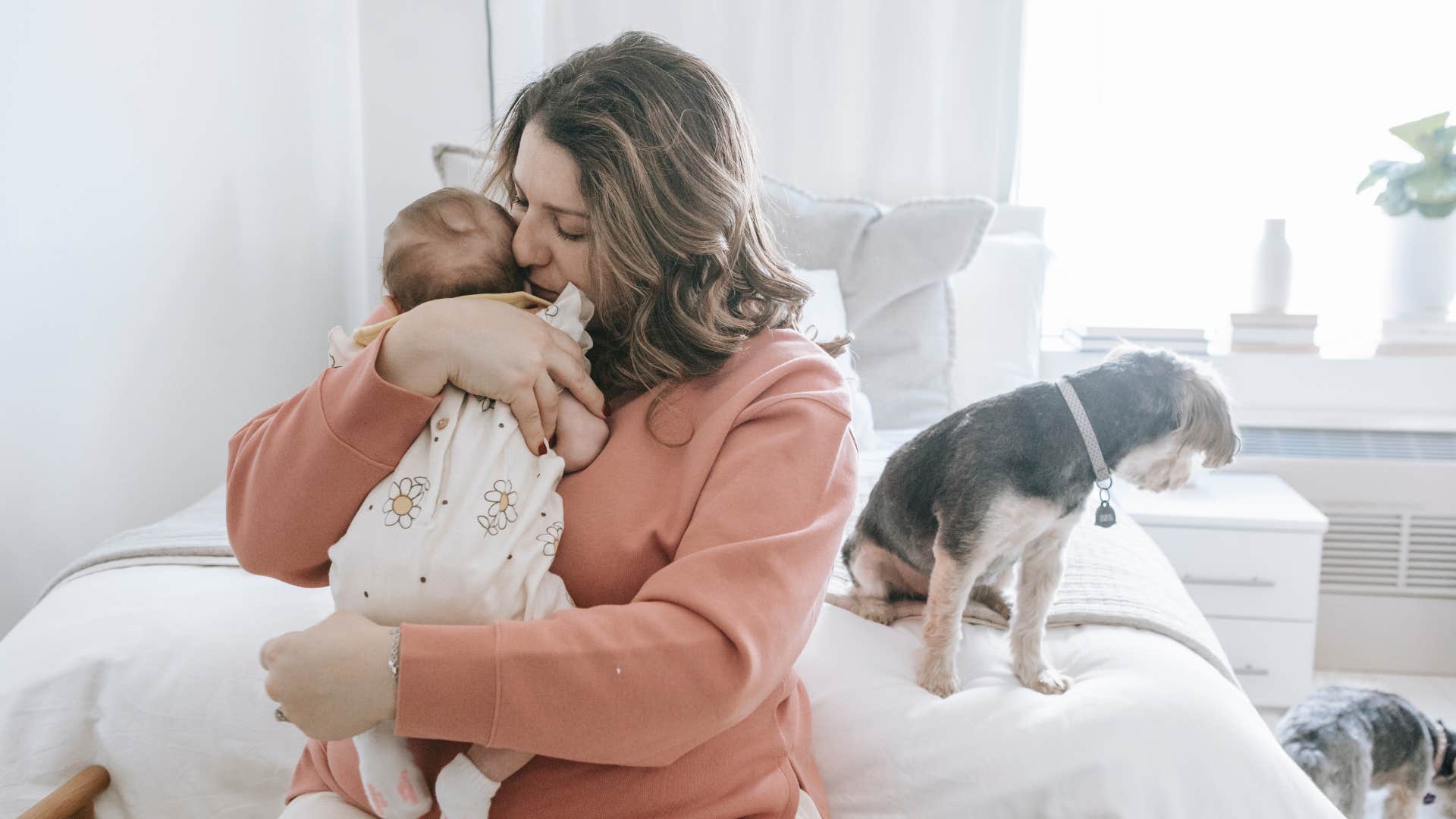 Sarah Chai from Pexels via Canva
Sarah Chai from Pexels via Canva
Naturally, a woman will prioritize her child after becoming a mother. When you have exerted all of your physical and emotional energy on her child, a cat or dog who needs attention can feel more like a chore than a labor of love. Feeding, grooming, and walking your pets start to feel like extra credit you don't need when mommy duties are constant.
Those once-routine tasks feel impossible when you are juggling naps, bottle preparation, pumping milk, diaper rashes, and baby meltdowns. Where you used to see your pet whining for attention or insisting on playtime as cute, you now see them as a needy little creature putting additional pressure on you when you are already stretched too thin.
3. Sleep deprivation makes them more irritable
 Elnur via Canva
Elnur via Canva
When you are running on a few hours of broken sleep, a barking dog or a lurking cat at two in the morning can feel like a personal attack. Once you get some much-needed rest, even the smallest disruptions like a jingling color or a pet leaping onto your bed can disturb your peace and cause you to resent their existence, at least for the moment.
Sleep deprivation makes your patience run extremely low. Things that once seemed small or endearing become infuriating. Not only is your mood impacted by not getting enough sleep, but it also warps your perception of what you can and cannot handle, and a needy pet is at the very bottom of the list.
4. Their emotional attachments shift
 Monkey Business Images via Canva
Monkey Business Images via Canva
You haven't really known love until you have experienced the love of a child. It's all-consuming, and it can overshadow that special emotional space you once reserved for your pet. You don't consciously pull away, but the intense connection to your little human can dull the attachment you once felt to your animal.
If you recognize this shift in emotional attachment, you might start to feel guilty, as if you've abandoned your first child. But rest assured that this is a natural emotional realignment when priorities change and motherly hormones take over. Emotional attachments constantly shift throughout life, and this situation is no different.
5. They have safety concerns
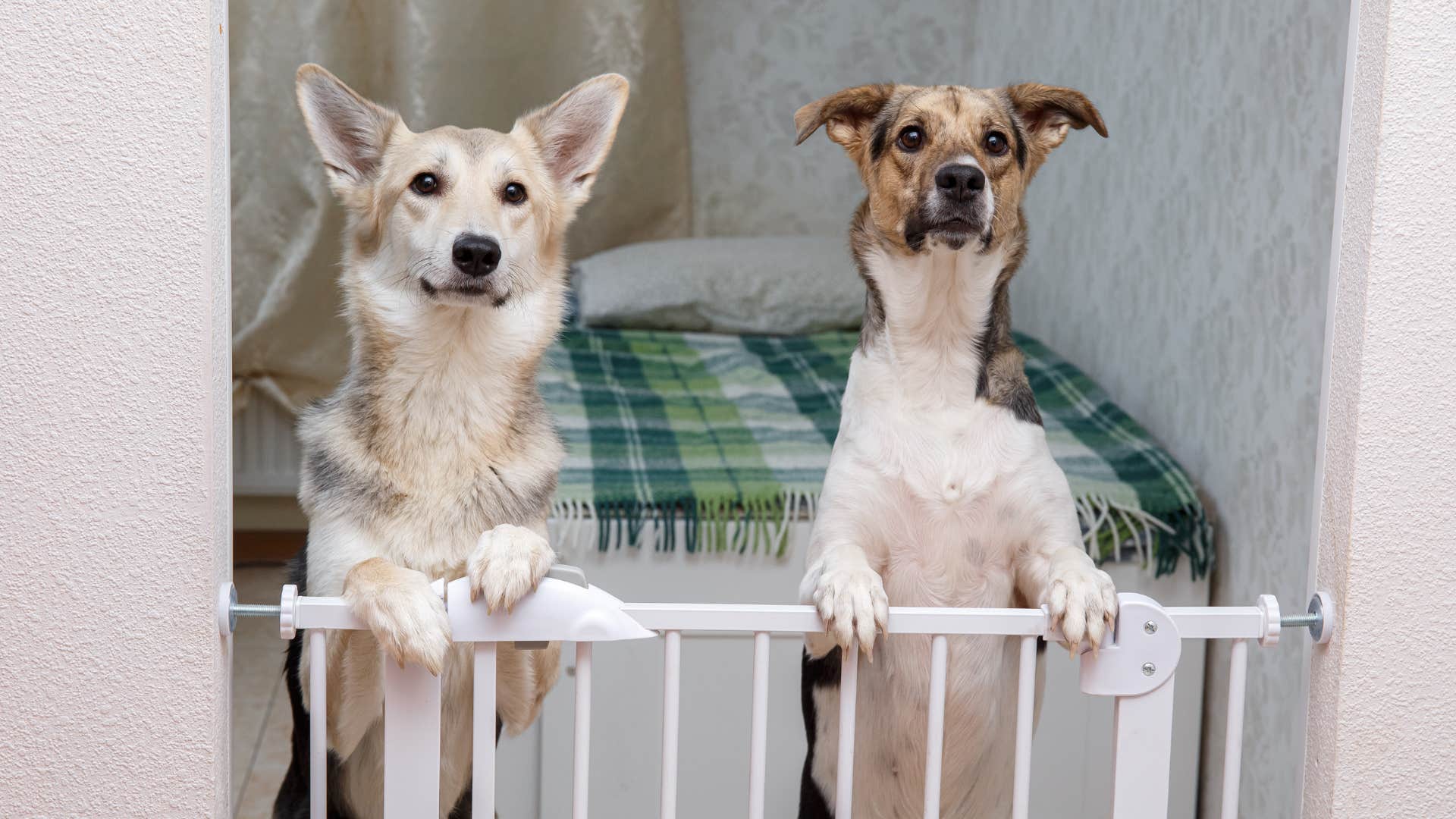 Aleksandr Zotov from Getty Images via Canva
Aleksandr Zotov from Getty Images via Canva
Even the most gentle pets can be a risk to a newborn baby. Germs, scratches, and jealousy make it important that babies are always supervised around your pets. Naturally, some mothers recognize the potential threat that their furry friend poses to their bundle of joy. Instead of seeing the animal as a source of comfort, they see them as something to protect their new baby from.
From bacteria on a dog's tongue to a cat jumping into the crib, the threats to the child's well-being are magnified, and the mom's instincts kick in. You begin to look at your pet with suspicion. It may seem as if you're being paranoid, but you really are just trying to keep your baby safe. Unfortunately, this protective mindset comes at the expense of the emotional connection between you and your pet.
6. Guilt and resentment get intermingled
 Viktor Gladkov via Canva
Viktor Gladkov via Canva
The fact that the love for their pet is not what it used to be after they become a mother causes many women to feel guilty, then resent the pet for making them feel that way. This emotional tug-of-war builds tension in the home and is an emotional minefield for a hormonal new mom. You get stressed when your pet needs attention that you no longer have to give, but are wracked with guilt for even having those thoughts.
This cycle of frustration will cause you to become emotionally fatigued and torn. You have fond memories of the love you had for your pet, but cannot seem to find the desire to connect in that way anymore. Try as you might, you just can't give them the same affection because your love has been split, and your pet is no longer a top priority.
7. Their pets lack boundaries
 debibishop from Getty Images Signature via Canva
debibishop from Getty Images Signature via Canva
Most likely, your pets never understood boundaries, but before there was a very important little person in the home, you allowed it. Now, the baby needs naps and Mom needs a break, but the pet hasn't gotten the memo that things have changed. So, they barge in while you're breastfeeding, leap into your lap while you are holding the baby, or bark loudly just as you finally get the baby to sleep.
This lack of boundaries is totally normal for pets, but now it feels like an intrusion on your privacy and personal time. All you need is a moment of peace and quiet, but your pet craves the company they were accustomed to in the past. There is no way to rationalize with your pet and let them know that they need to change their behavior all of a sudden.
8. They have less time for bonding and play
 RossHelen via Canva
RossHelen via Canva
People without kids often make dedicated time for their pets. That playtime is the highlight of their day and a very important pastime. But once you become a parent, those stolen bonding moments feel like a luxury you can no longer afford. You start to skip walks, stop buying every new chew toy you see, and forget to give those reassuring belly rubs.
You still care deeply about your pet, but you have no more emotional bandwidth. The bond between you and your pet starts to break down slowly, and the pet begins to act out, further annoying you and creating more distance. The less time you give them, the deeper the divide.
9. They're dealing with unmet expectations
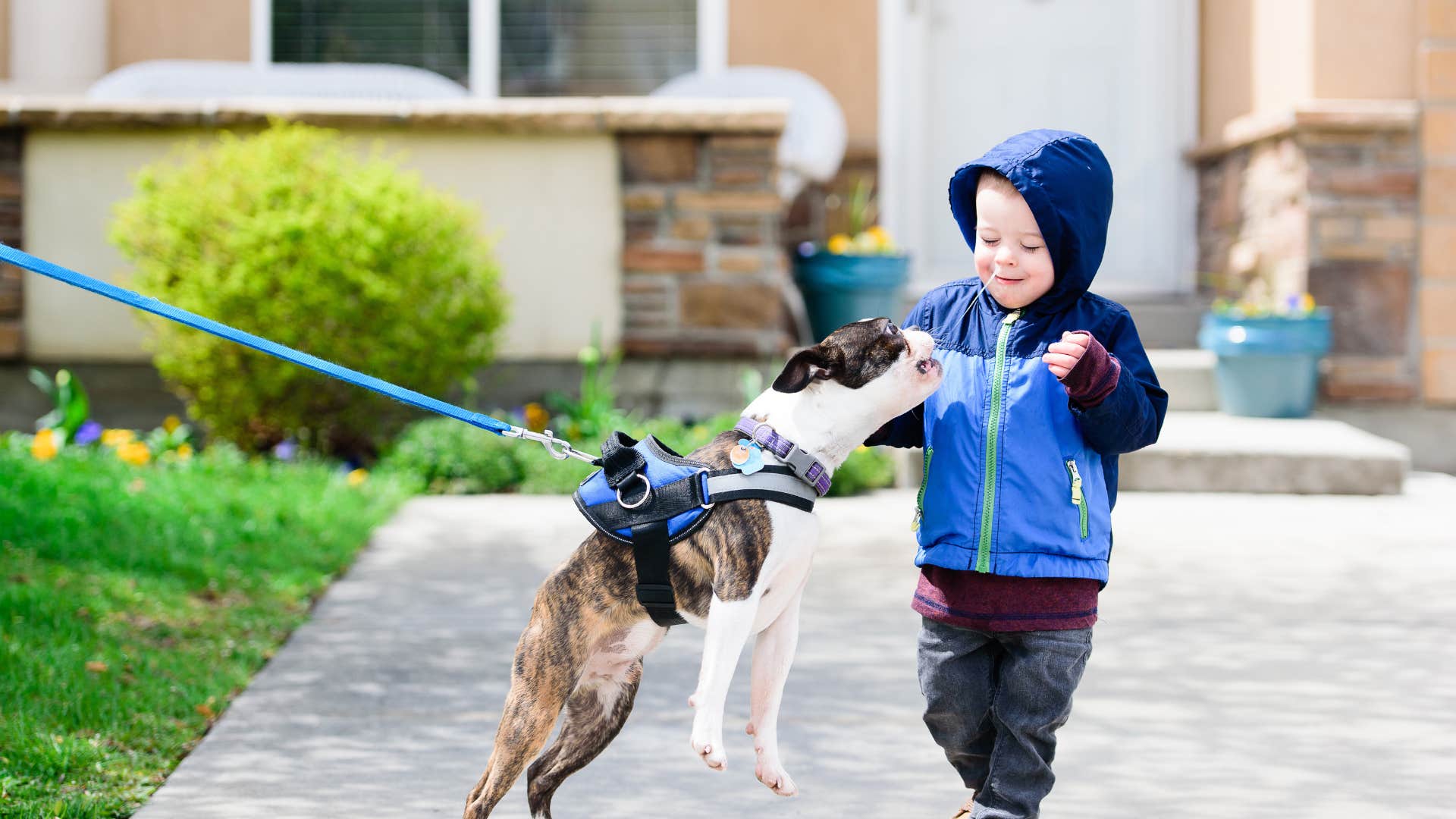 WhitneyLewisPhotography from Getty Images Signature via Canva
WhitneyLewisPhotography from Getty Images Signature via Canva
Two kids, a dog who loves them, and a white picket fence used to be the dream of a perfect family. But life is not perfect. New babies might cause your dog to bark excessively, feel anxious, and create chaos in the household. You imagined them growing up together like the best of friends, and when reality hits, it can be very disappointing.
The gap between how you expected life to look and reality can make you feel disillusioned and resentful. You might even start to resent your pet because they could not live up to the role you had created for them in your head. It's important to remember that pets are living creatures with flaws just like humans. They won't always be, or even understand, what you expect them to be.
10. Their pet acts out
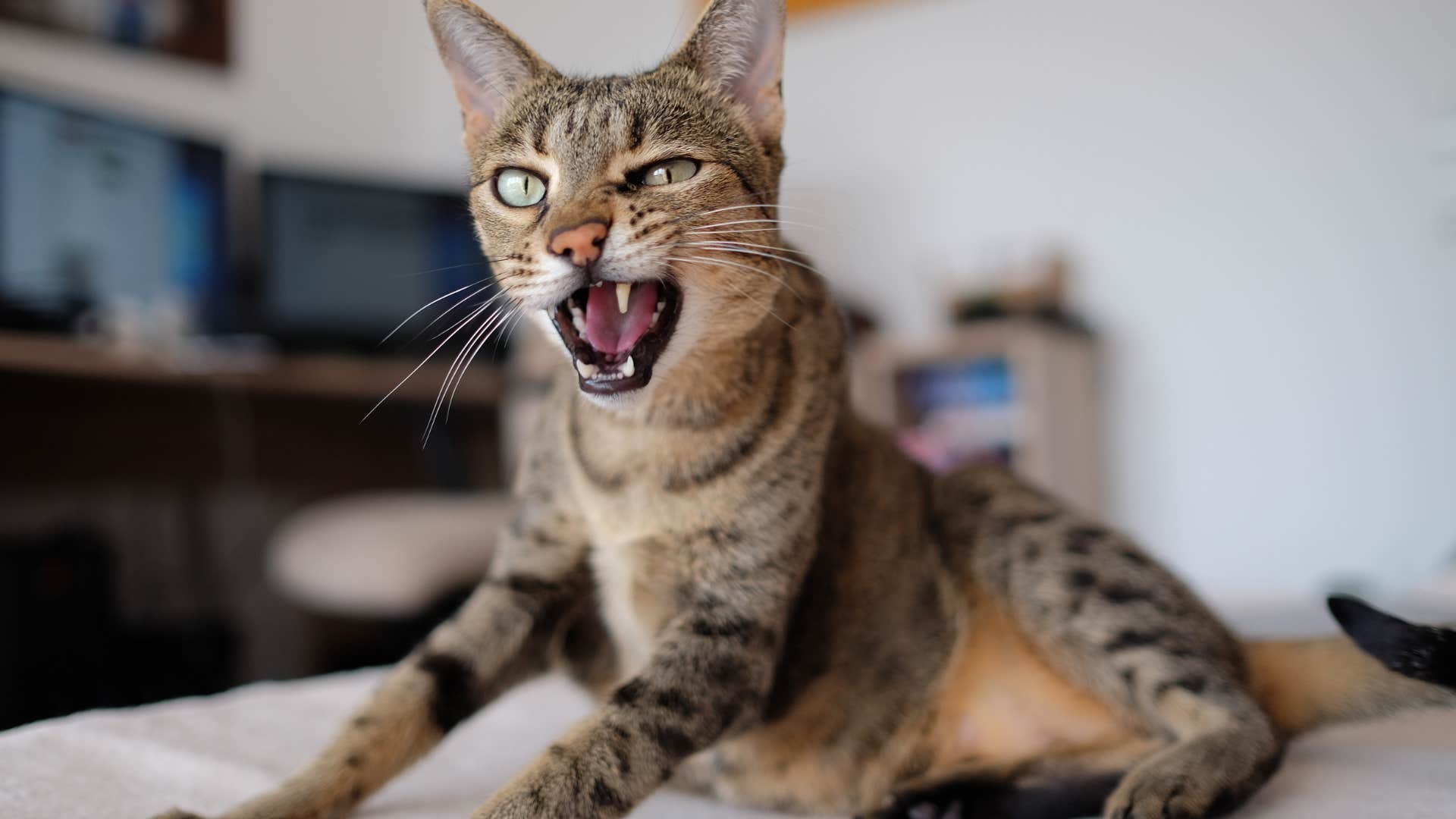 Pierre Aden from Getty Images via Canva
Pierre Aden from Getty Images via Canva
Whether it is due to jealousy or a lack of familiarity with the new circumstances, a new addition to the family can cause dogs or cats to act out. A baby entering the home causes them to do things that they may not have previously done. They might chew on furniture, relieve themselves inside the house, become aggressive, or withdraw.
A new mom might struggle to understand why their pet is acting this way and become annoyed. The animal's behavior will feel like a targeted attack instead of a cry for help. You start to see them as a source of stress rather than a loyal companion. Both you and your pet are struggling to adjust to the new normal.
11. They've changed, and that's okay
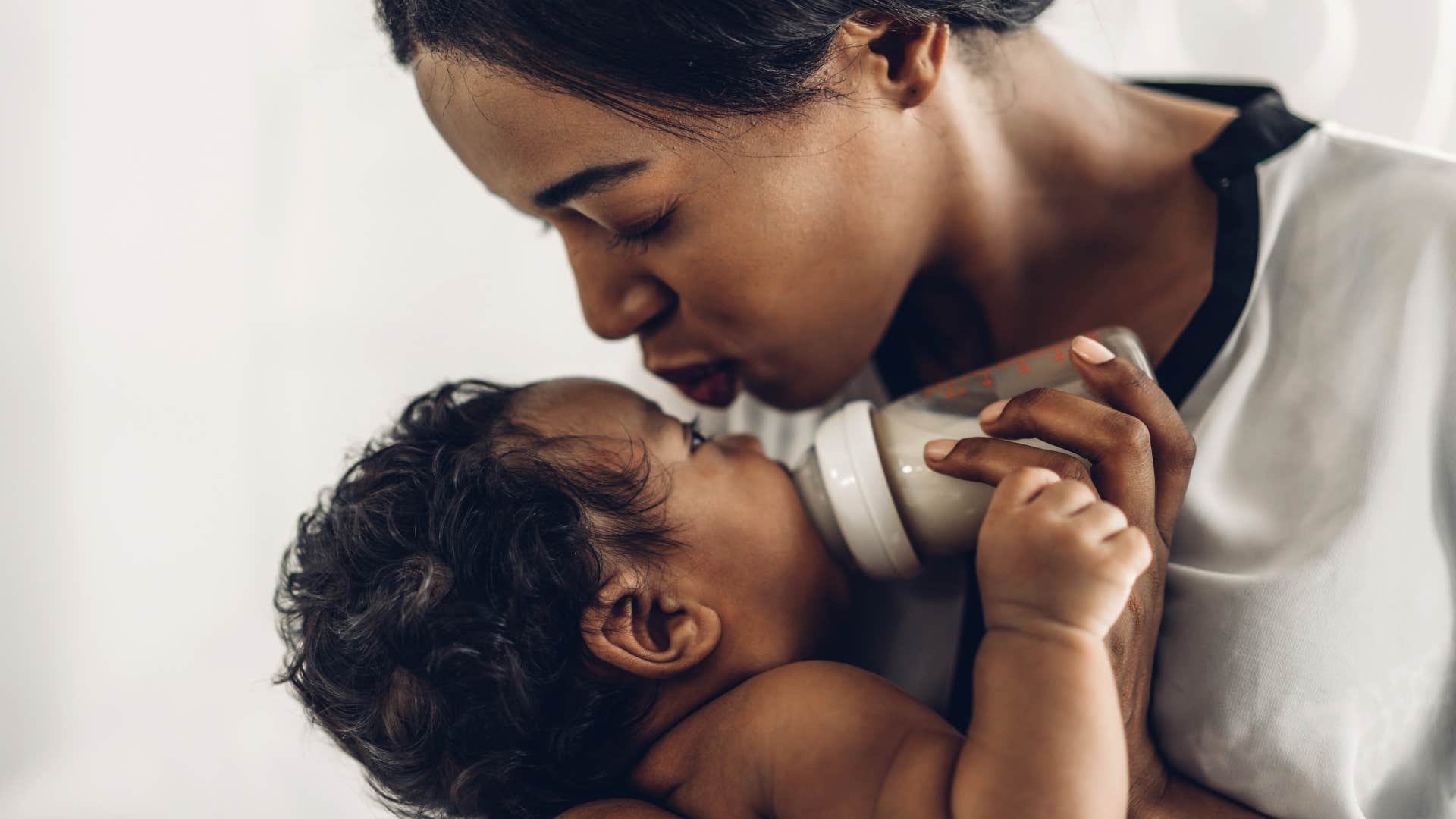 Art_Photo via Canva
Art_Photo via Canva
Women's brains change a lot during pregnancy. Social cognition and memory are impacted by the decision to become a mother and carry a child. Some changes are temporary, and some can last a lifetime. So, it stands to reason that a woman might feel differently about the importance of her beloved pet after her brain shifts her focus to the little life she is responsible for.
Motherhood can reshape your identity, energy, and your ability to be emotionally available. You may have once cherished quiet evenings with your kitty or long walks with your dog, but those things seem inconsequential now. It's perfectly okay to grieve what you've let go instead of acting as if nothing has changed and forcing it.
NyRee Ausler is a writer from Seattle, Washington, and the author of seven books. She focuses on lifestyle and human interest stories that deliver informative and actionable guidance on interpersonal relationships, enlightenment, and self-discovery.

